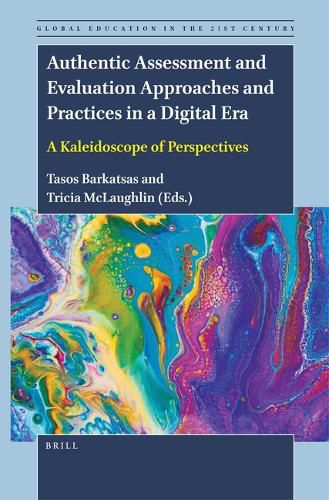Readings Newsletter
Become a Readings Member to make your shopping experience even easier.
Sign in or sign up for free!
You’re not far away from qualifying for FREE standard shipping within Australia
You’ve qualified for FREE standard shipping within Australia
The cart is loading…






In this book, 37 international academics illustrate how authentic assessment is an effective measure of intellectual achievement as it requires the demonstration of deep understanding and complex problem solving through the performance of exemplary tasks. By exploring the concept of authentic assessment in both tertiary and school education, the authors in these chapters argue that authentic assessment is not only the measurement of significant intellectual accomplishments but also an important pedagogical structure.
Authentic assessment is a concept more closely defined as an umbrella term that seeks to immerse learners in environments where they can gain highly practical and lifelong learning skills. Authentic assessment has been on the educational agenda for a number of years and keeps being a powerful tool for assessing students’ 21st century competencies in the context of global educational reforms.
Contributors are: Pinar Akyildiz, Fatma Nur Aktas, Chrysoula Arcoudis, Tasos Barkatsas, Michael Belcher, Antonios Bouras, Athina Chalkiadaki, Jere Confrey, Rebecca Cooper, Yuksel Dede, Paul Denny, Zara Ersozlu, Ivan Fortunato, Linda Hobbs, Marj Horne, Fragkiskos Kalavasis, Katerina Kasimatis, Belinda Kennedy, Gillian Kidman, Huk Yuen Law, Susan Ledger, Kathy Littlewood, Jiabo Liu, Michelle Ludecke, Tricia McLaughlin, Juanjo Mena, Andreas Moutsios-Rentzos, Greg Oates, Anastasia Papadopoulou, Fabiano Pereira dos Santos, Angela Rogers, Grainne Ryan, Rebecca Seah, Meetal Shah, Hazel Tan, Naomi Wilks-Smith, Dallas Wingrove, Qiaoping Zhang and Xiaolei Zhang.
$9.00 standard shipping within Australia
FREE standard shipping within Australia for orders over $100.00
Express & International shipping calculated at checkout
In this book, 37 international academics illustrate how authentic assessment is an effective measure of intellectual achievement as it requires the demonstration of deep understanding and complex problem solving through the performance of exemplary tasks. By exploring the concept of authentic assessment in both tertiary and school education, the authors in these chapters argue that authentic assessment is not only the measurement of significant intellectual accomplishments but also an important pedagogical structure.
Authentic assessment is a concept more closely defined as an umbrella term that seeks to immerse learners in environments where they can gain highly practical and lifelong learning skills. Authentic assessment has been on the educational agenda for a number of years and keeps being a powerful tool for assessing students’ 21st century competencies in the context of global educational reforms.
Contributors are: Pinar Akyildiz, Fatma Nur Aktas, Chrysoula Arcoudis, Tasos Barkatsas, Michael Belcher, Antonios Bouras, Athina Chalkiadaki, Jere Confrey, Rebecca Cooper, Yuksel Dede, Paul Denny, Zara Ersozlu, Ivan Fortunato, Linda Hobbs, Marj Horne, Fragkiskos Kalavasis, Katerina Kasimatis, Belinda Kennedy, Gillian Kidman, Huk Yuen Law, Susan Ledger, Kathy Littlewood, Jiabo Liu, Michelle Ludecke, Tricia McLaughlin, Juanjo Mena, Andreas Moutsios-Rentzos, Greg Oates, Anastasia Papadopoulou, Fabiano Pereira dos Santos, Angela Rogers, Grainne Ryan, Rebecca Seah, Meetal Shah, Hazel Tan, Naomi Wilks-Smith, Dallas Wingrove, Qiaoping Zhang and Xiaolei Zhang.